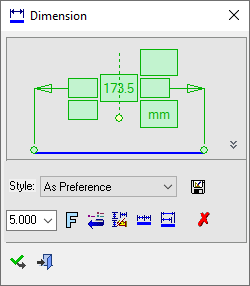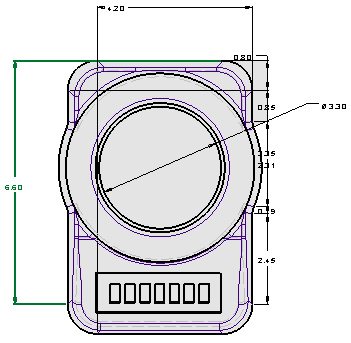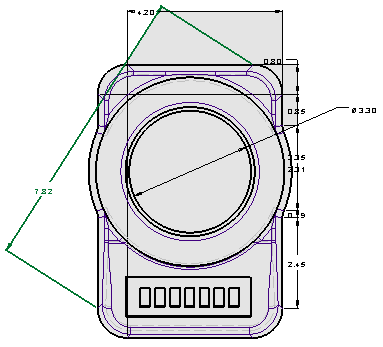|
|
Linear Base Line Dimension 
Access: Open this function from one of the following locations:
-
Click
 in the toolbar.
in the toolbar. -
Select Symbols > Textual > Dimension from the menu bar.
-
Select Dimension on the popup menu (right-click the graphics pane area).
The Linear Base Line Dimension option allows you to measure the total distance from a starting point in a chain to the end point. The sub-total of each point picked in the chain is displayed.
|
Linear Base Line Dimension dialog Click on an item in the dialog for a description. (the Linear Dimension dialog is displayed) See below for additional information. |
Example Linear Base Line dimension |
|
|
|
See the Advanced Area Options below.
Creating a linear base line
InvokeInvoke the Dimensions function. A grayed-out dialog is initially displayed.
See the Dimensioning Process for additional information.
Place the cursor over the first point to be picked which is automatically marked with a green square.
When the cursor changes to the dimension symbol, pick the point.

Pick the second point then pick outside the figure to create the dimension.
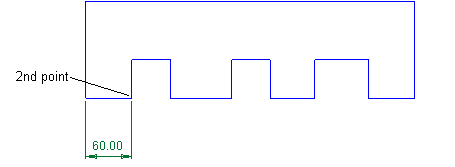
In the Dimension dialog, click the Base Line Dimension button ![]() (the cursor changes to the Base Line Dimension pointer
(the cursor changes to the Base Line Dimension pointer  ) then pick consecutive points in the chain while <exiting><exiting> between each picked point.
) then pick consecutive points in the chain while <exiting><exiting> between each picked point.
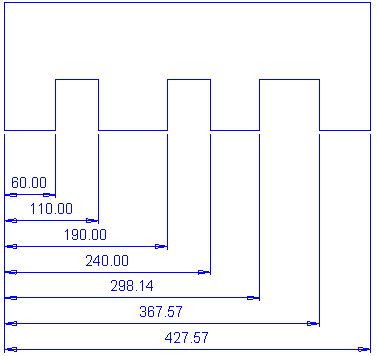
The total length from the base point to the picked point is displayed. The distance between the individual length parameters is defined in preferences yet they can be moved manually to a new location in the graphic area. This is done by double-clicking the parameter and dragging it.
Edit its parameters with the help of the hot spots and tips either directly in the graphics pane area or on the popup submenu. Change font style ![]() and character size also if required.
and character size also if required.
To complete the current operation and remain in the dialog, select Apply ![]() or <exit><exit>.
or <exit><exit>.
To exit the function, select Close ![]() .
.
Note: For additional information, see the Dimensioning Process and the attached notes.
Advanced Area options
All Dimension dialogs have an Advanced Area where additional dimension options are available. Click the Expand toggle button ![]() on the Dimension dialog to show the Advanced Area parameter(s).
on the Dimension dialog to show the Advanced Area parameter(s).
The Inspection Dimension option appears in all the Dimension dialogs; however, additional options may also appear here depending on the entity selected to be dimensioned.
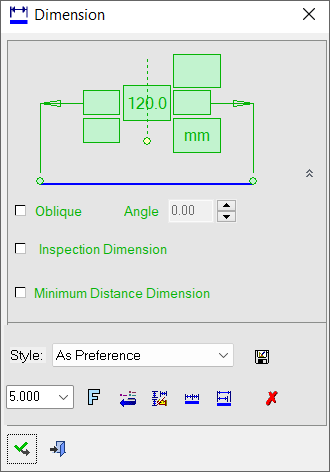
For a description of the Oblique option, see Linear Oblique.
|
Inspection Dimension |
Surround dimensions with a rounded outline. This means that it is a dimension that should be inspected/verified after production.
|
|
Minimum |
Create and position a dimension at the minimum distance between two points.
|
For environments that require the frequent use of the Minimum Distance Dimension, the option can be set as the default in Preferences > Drafting > General > Dimensions by selecting the Point to Point Dimension > Minimum Distance parameter.
|
